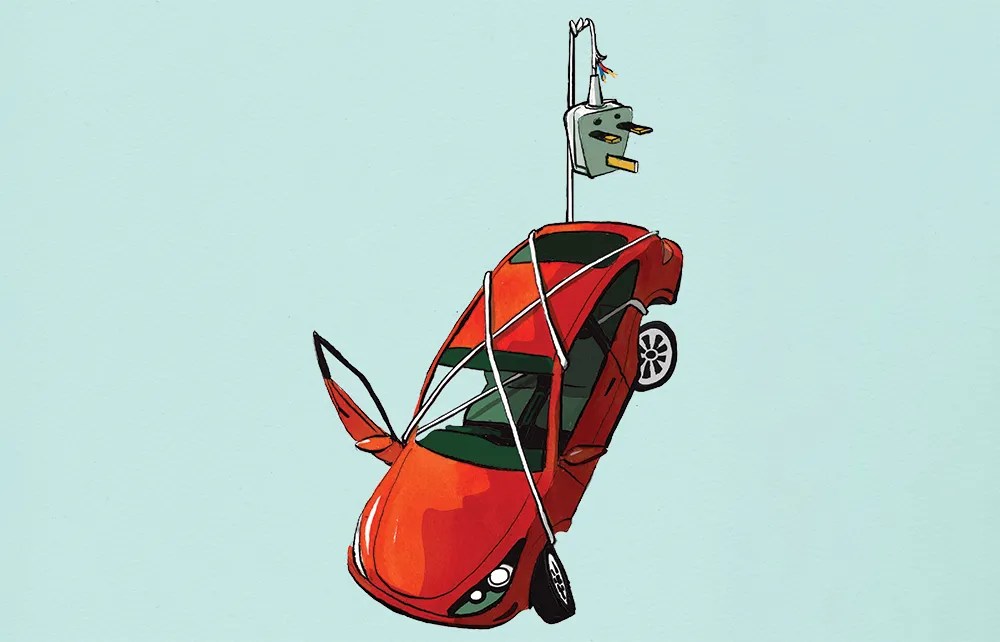It is hard to see where all of Ed Miliband’s ‘green jobs’ are coming from, but we are certainly losing existing manufacturing jobs. Net zero has just claimed a very significant scalp. Stellantis, the parent company of Vauxhall, has said that it plans to close its plant at Luton, where it makes the Vivaro van, at the cost of 1,100 jobs (although some work will be transferred to its other UK plant at Ellesmere Port).
This has been coming for months; Stellantis chief executive Carlos Tavares warned earlier this year that the Zero Emissions Vehicle (ZEV) mandate is making car-making unviable in Britain.
Net zero has just claimed a very significant scalp
Here is the problem: ZEV obliges manufacturers to make sure that 22 per cent of the cars they sell in Britain over the course of this year are purely electric models. This is a proportion that rises steadily every year until it reaches 80 per cent by 2035 (or 70 per cent for vans). If manufacturers fail, they will be fined £15,000 for every petrol or diesel car with which they breach the limit. The trouble is, as I warned here a year ago, a few weeks before ZEV came into force, the market is nowhere near ready for such a sharp increase in the supply of electric vehicles.
At the time, sales of EVs had stalled at around one-sixth of the market. Since then, they have hardly budged. Between January and October, according to the Society of Motor Manufacturers and Traders, EVs made up 18.1 per cent of sales. That is in spite of carmakers offering big discounts on electric models as well as deferring sales of petrol and diesel cars until January. Motorists – especially private ones – are refusing to play ball with the government’s targets, and as a result, some very large fines are looming. The situation for many is more desperate than the overall figure suggests, because some makers, such as Tesla, only sell EVs.
The current government – which was not responsible for this particular piece of green legislation – says it is listening. Last week, Business Secretary Jonathan Reynolds met Stellantis and other carmakers. But there is no sign yet of any relaxation of the targets. The closure announcement of Luton has perhaps been timed to apply pressure on the government.
Two observations demand to be made. Firstly, the car industry itself is partly to blame for its current predicament. When the ZEV targets were consulted on in March last year, Stellantis was all in favour. Its senior vice-president and group managing director, Paul Willcox, declared: ‘Stellantis is fully committed to achieving 100 per cent electric new car and van sales in the UK and Europe by 2030. This is true across all of our brands including Vauxhall, Peugeot, Fiat and Citroën, so we fully support the UK government’s ambitions.’
Secondly, there is a very big irony. Brexit, Remainers warned, would lead to car manufacturers withdrawing from Britain. That may very well be what ends up happening, but for a very different reason than Remainers could have imagined – in fact, than anyone could have imagined. Car manufacturers have learned to live with greater friction in trade between Britain and the EU. What no one foresaw, however, was that a Britain freed from EU regulatory control would choose to introduce tougher net-zero targets than those in the EU. Were it not for Brexit, the ZEV couldn’t exist; Britain would be tied to the looser EU target of ending the manufacture of petrol and diesel cars by 2035. Brexit Britain, Remainers claimed, would become a deregulated hellhole. Instead, in this respect, the opposite has happened – we are losing a chunk of our car industry because a Conservative government decided to impose harsher regulations than our European neighbours.








Comments